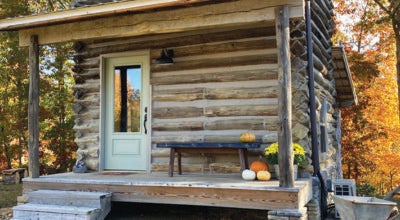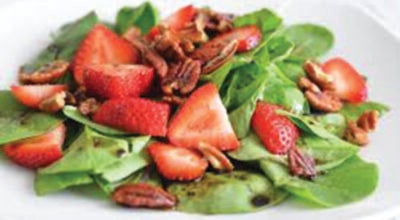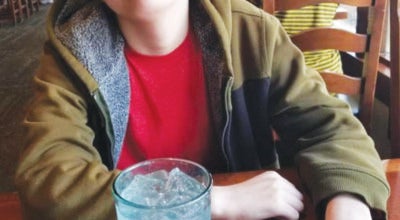The Literary Corner: Renegade Writer’s Guild
Published 10:25 am Thursday, May 24, 2018
“The Voice”
By Linda Barnette
“No, I don’t have laryngitis.” I say that weekly at least once to a waitress, a clerk, or to someone that I meet for the first time. People wonder why I whisper. In 1993 I was diagnosed with a rare voice/vocal cord disorder (long technical name not needed here). For a long time, my doctors at both Baptist and Duke injected my vocal cords with Botox, which was the standard treatment for my condition. I also had speech and voice therapy for several years as well as a couple of unsuccessful surgeries. Early on I thought my condition would improve because life without a voice would be pretty miserable. Since I was a teacher, I continued with treatments so I could finish out my years in the classroom. My students obviously knew I didn’t have a regular voice, so they delighted in being my helpers. I think they were quiet because I was, although I did have a little microphone I attached to my desk, so they had no real difficulty in hearing me.
When it appeared obvious that nothing was helping my condition, I decided to give up my treatments and figure out how to survive with only a whisper. Years earlier I had begun to get interested in genealogy but had been too busy to pursue it. With time to do it, I began to actively research my Hartley ancestors. I went to libraries and cemeteries searching for information. Eventually, I finished that family tree only to discover that one’s genealogy is never finished because there are so many names and families to research. I’m thankful for the many helpers in my research: the Davie County Public Library for free access to Ancestry.com; to Barbara Harvel, the volunteer there; and to my friends and family for all of those library and cemetery trips; and to my cousin, Bob Smith, for his partnership in some of the family lines.
Another hobby that I developed was learning to play the bells in the handbell choir at First Presbyterian Church. When the group first formed in 2009, the then-director invited me to join, knowing I loved music but could no longer sing. At first, I refused but changed my mind and decided to give it a try. Although I’m still an amateur, the bells give me another way to be involved in the music ministry of the church as well as a continuing group of friends.
Another hobby evolved when I saw a note in the local paper two years ago about a meeting for people interested in writing. I went to it and soon joined the group which became the Renegade Writers Guild. There are a dozen of us who meet twice a month. We are given certain topics and genres to write, and the Enterprise publishes our work weekly. We seem to have faithful readers who are happy about that. Last year we published our first book of short stories and are in the process of getting this year’s book ready to go to press. I’ve also met some new friends in this group.
I’m especially grateful for the modern technology that has allowed me to stay connected to people via email and Facebook and for my Kindle which allows me to always have several books from which to choose.
So, my friends, as you can see, I’ve learned to live and even thrive with what some would consider a disability. Thanks be to God for leading me to several new and quiet hobbies and for giving me the strength and courage that it takes to be “different.”
“Eat the Cake”
By Stephanie Dean
Any reason to eat cake is a good one – even a superstition. If you’re planning to attend a wedding this summer, set all guilt aside, and approach that cake with gusto. After all, who knew a refusal to partake in wedding cake could be most unlucky for both the couple and you?
While our cake “practices” are steeped in respectable tradition, they’re also supported by an old wives’ tale or two. Now that “traditional” seems to be making its way back in style, the art of cake cutting just might begin to uphold ceremonious meaning once again. And while there’s always much fanfare surrounding the cutting of a wedding cake, many folks don’t have a clue as to why. But etiquette gurus insist there’s good reason for it–and a proper way to perform this symbolic tradition, too.
At a wedding, cutting the cake is the first sign of hospitality-the first domestic act a bride and groom will perform together as a new family unit. It symbolizing a commitment to share with each other, support one another, and share their possessions. The bride cuts the cake with her right hand while the husband stands beside her, putting his right hand over hers as they cut together. There is some superstition regarding this practice. A bride must always cut the first slice of cake or the couple will be without children. She must not bake her own cake, or she risks being doomed to work hard for the duration of her life. And not a single bite of cake should be sampled prior to her wedding day, or she will be most unlucky.
The wedding cake tradition has been part of a bridal feast since Roman times. The cake symbolized good fortune and fertility. Therefore, the cake was made of the highest quality and riches ingredients available. Many believed an exquisite wedding cake indicated abundance, and somehow through magic, it was believed to attract more of the same to a happy couple. If the cake had been well made, it was a sign of a well-formed marriage. Any cake that split or did not turn out well, foreshadowed a poor future for the wedded couple.
Cake cutting traditions also involve the wife and husband feeding each other a piece of cake after they’ve cut it together. In another ceremonial act, when the husband feeds his wife a piece of cake, he shows the world that he will take care of her–a representation of his good intentions to provide food for his wife and family. When the wife feeds her husband, she indicates how she will care for her husband and provide for him. A very old-fashioned and symbolic act, she is offering herself up to him, inviting him to share in all she has to offer. Cake smashing is considered a defiant act, a mockery of the symbolic nature of feeding one another.
Regarding the groom’s cake, tradition is such that the first slice of this cake should be presented to an unmarried woman attending the wedding. She is not to eat it but to take it home and put it under her pillow. Superstition suggests she will then dream of her future husband which will help her find him.
With wedding season almost upon us, give yourself permission to indulge by having a second slice of that decadent wedding confection–we can all benefit from a little more good luck.
“Memories in Lilac”
By Julie Terry Cartner
As I bury my face in the fragrant lilacs, memories assault my senses and overflow my heart. Immediately I am transported back to the Linden Farm of my childhood, my ten-year-old self, bedecked in shorts, a blue T-shirt, and flip-flops. My hair, caught up in pigtails, frames my freckled face, and my nose is already sunburned.
Snow white ducks quack contentedly as they tear blades of the new spring grass with their bright orange beaks. Their webbed feet slide across the grass, swiftly, like ice skaters racing across a frozen pond, amazingly quickly considering their short, stubby legs. Hens scratch in the nearby dirt, hungrily looking for a snack while their curious eyes and nodding heads make them look like little old ladies sitting down for a gossip. Never far away, my sable and white collie guards me as if I were in imminent danger from a poultry attack.
I pluck a blade of grass, and sitting cross-legged on the ground, stretch it between my two thumbs and achieve a satisfying screech when I blow against it. Bees buzz lazily overhead as I lie back and peruse the heavens through the large, veined leaves of the chestnut tree. White, fluffy clouds meander across the achingly beautiful blue sky, the color of my father’s eyes. For a short time, I amuse myself finding shapes in the clouds, a whale, a daisy, a dinosaur.
The warm spring sunshine caresses my face, and I allow myself a few moments of sheer indulgence as I breathe in the glorious scents of spring, the tender grass, sun-warmed soil, and the flowers – Grandma’s lilies of the valley, the almost translucent blushing pink of the cherry blossoms, so fragile against the rough-hewn bark of the tree, and my favorite, the lilacs, their purple scented melody dancing across my senses.
I look up when I hear my dad’s truck pulling into the driveway. Leaving my flip-flops behind, I tear across the soft grass and leap onto the sideboard, riding shotgun the rest of the way towards his parking spot. As was his wont, Dad turns off the engine and coasts the remainder of the way to save a teaspoon of gas – always frugal, my dad! Then, holding hands, we walk across the yard, not talking, just being. My dad is a man who doesn’t need words to convey his feelings. I see the stress slip off his shoulders each step he takes, now that he is in his own kingdom. Then with his lips curling up into his trademark smile, he surveys his home – his grandfather’s, then his father’s, then his. I see the pride in his eyes when he looks over the pristine flower beds, the manicured lawn, the neatly trimmed bushes, and the trees that he has planted over the past few years. I hear the pleasure in his voice as he utters just one word, home.
Reality intrudes in the form of two wagging tails and two grinning dog faces welcoming me home and asking why it was I was breathing in lilacs instead of properly greeting them. I am no longer ten, and my beloved Linden Farm is no longer mine. My dad has been gone for years, along with the ducks, chickens, and collie. But despite the pang of grief that always follows that thought, I look around at my home, with new spring grass, lilies of the valley under the pear tree, and blooming lilac bushes, and I know that home is more about the heart than it is about the location, and my memories will remain, ready to be retrieved every time I smell a lilac.
“Letters, Video, and Memories”
By N. R. Tucker
Old letters jog memories. I remembered this when my mother-in-law shared a stack of six bound folders containing correspondences from my family. She had kept the letters we sent her over the years as we moved frequently, courtesy of the United States Air Force. Of particular interest was a bound volume titled Letters from Italy.
The letters reminded me of stories long forgotten and also of what actually happened. For example, both my husband and I thought I had both kids with me when my car broke down on the autostrada. Not so. The proof was in the letter as I detailed to Margaret the joys of car trouble when you don’t speak the language very well, and you need to pick up a kid at Asilo before school lets out.
We converted our home movies from VHS to DVD years ago, and now we need to convert them to digital. Most of the video was also of Italy. We watched the DVDs the other night, and for the most part, I know why we didn’t tape a lot of home movies. We were terrible at it. Offenses include choppy videos, the camera seemed to be a signal to the kids that they should act up, and I’m usually muttering when I’m in charge of the camera. In general, our videos look like “How Not To” instructions. We did capture a lovely Easter egg hunt, but dying Easter eggs was a mess. Stephen was okay with the Easter Bunny, but Michelle was having none of it. Overall, we failed to take video of the area, focusing on the kids. Most of our video was in Italy and sent to the grandparents so they could watch their grandkids grow.
As I look over the correspondences and watch the videos, I find that I enjoy the letters more. They are better at jogging my memory.
Overall the trip down memory lane has been fun, especially when I read about some escapade the kids executed that I had forgotten about. The words on the page triggered the memory, and now I have it again. I also noticed a decline in correspondences in later years as we moved from snail mail to email. The letters became shorter and not nearly as fun to read, almost as if the ease of sending them reduced my attention to detail.
After reading those letters, I feel sorry for the kids of today. They will have no paper to hold, read, and relive stories from their past. Perhaps social media – Facebook, Tumblr, Snapchat, Instagram, Twitter, and such – will provide the next generation with the same memory triggers those old letters provided me. But I fear they will have choppy videos that lack the detail and context of a nicely written letter.
Special thanks must be given to my mother-in-law. She is a wise woman to have kept those letters.





